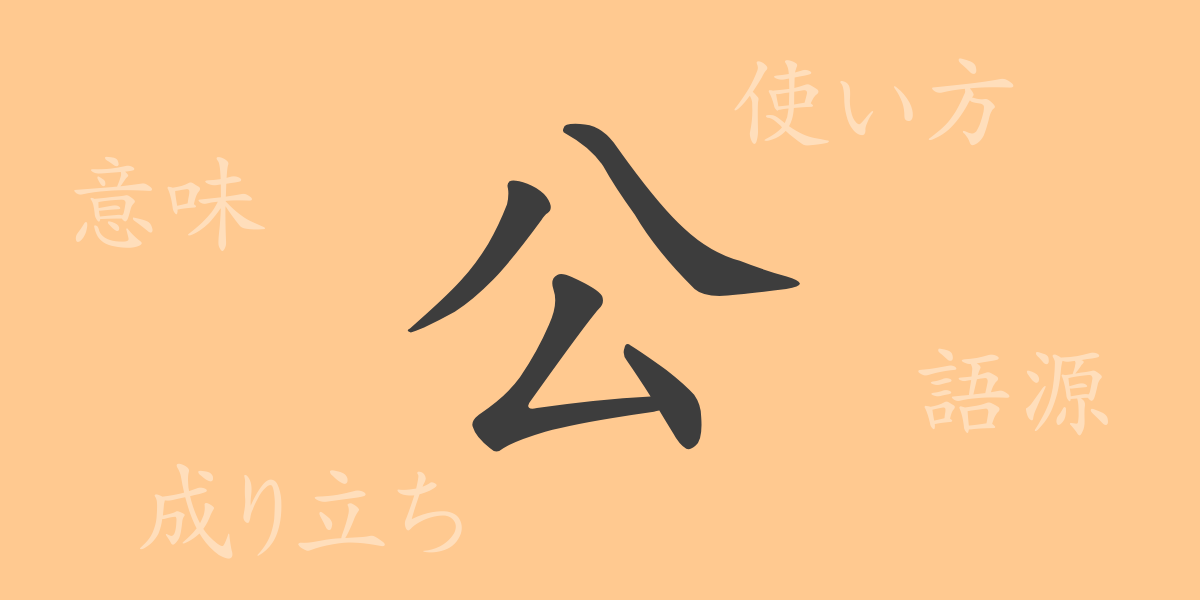The Japanese language is rich with kanji characters that have been in use for over a thousand years. These kanji are deeply intertwined with Japanese culture and history, holding meanings rooted in daily life. One such common-use kanji is “公(こう)”, a character that conveys fairness and social significance. In this article, we will explore the origins and various uses of “公(こう)”, diving deep into its historical and modern-day applications.
The Origins of 公 (Etymology)
The kanji “公(こう)” evolved from ancient Chinese pictographs. Originally, it depicted the act of creating something with tools. Over time, its meaning expanded to include the concept of “common” or “shared,” representing things belonging to the community or society, hence the term “public.” Through this evolution, “公(こう)” came to signify fairness and matters related to the state or society.
Meanings and Uses of 公
The kanji “公(こう)” has multiple meanings. The most common is “public,” referring to matters that concern the whole society or are not private. It also means “fair,” indicating impartiality and equal application to everyone. In everyday usage, you can find it in words like “公園(こうえん, park)” and “公共交通機関(こうきょうこうつうきかん, public transportation),” frequently used terms in daily life.
Readings, Stroke Count, and Radical of 公
Despite its simple shape and usage, the kanji “公(こう)” plays an important role in Japanese.
- Readings: The on’yomi (音読み) is “コウ(こう),” and the kun’yomi (訓読み) is “おおやけ (おおやけ).”
- Stroke count: 4 strokes
- Radical: 八部 (はちぶ, “eight” radical)
Compound Words, Idioms, and Proverbs Using 公
There are numerous compound words, idioms, and proverbs that include “公(こう),” reflecting the richness of the Japanese language. For example, “公私混同(こうしこんどう)” criticizes mixing work with personal affairs. “公平無私(こうへいむし)” describes handling matters impartially without personal bias, and “公明正大(こうめいせいだい)” signifies being open, honest, and magnanimous. These expressions highlight the Japanese societal values of fairness and public interest.
Summary of 公
The kanji “公(こう)” symbolizes public interest and fairness, deeply embedded in the Japanese language. Its straightforward yet powerful meaning is indispensable in Japanese law, culture, and daily life. Understanding the history and background of this character allows for richer expression and greater appreciation of its significance. Mastering “公(こう)” and its proper usage is highly valuable for anyone studying Japanese.

























